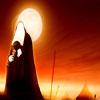
Today in the twenty-seventh episode of our daily series, we continue our focus on the tragic events in the aftermath of the tragedy of Karbala on the fateful Day of Ashura, i.e. the evening of the 10th of Moharram in the year 61 AH, following the martyrdom of Imam Husain (AS). In particular, we shall focus on the plight of the Imam’s sister, Hazrat Zainab (peace upon her) and the gory sight she saw of the headless bodies of her kith and kin, including her two sons.
One of the most poignant and heart-wrenching moments on the Day of Ashura is the tearful and emotional farewell with the torn, headless and lacerated body of Imam Husain (AS), by his sister, Hazrat Zainab (peace upon her). The children were horrified. There was no compassion in the hearts of these so-called Muslims for the Immaculate Ahl al-Bayt or Household of Prophet Mohammad (blessings of God upon him and his progeny). Even the bodies of the martyrs of Karbala were trampled by the dastardly Omayyad forces. The night that enveloped the plain of Karbala in darkness is the most pathetic night in history. It is known as the Night of Calamity. It was the night when the exhausted, hungry and tired children and ladies of the Prophet’s Household sat in loneliness, after having lost their loved ones in the unjust battle on that day. Due to the illness of Imam Zain al Abedin (AS), the 23-year old son and successor of Imam Husain (AS), the Prophet’s granddaughter realized that she would have to take care of the small group of women and children herself. She called her younger sister Omm Kolthoum to help her and they decided to count all the children to see that none had gone missing in the confusion of the fire that had burned down the tents. To her horror, she found the youngest 3-year old daughter of the Imam, named Ruqaiyya missing.
The two ladies searched everywhere for the young girl in the dead of night, and finally in desperation went to the place where the body of the Imam lay, and cried, saying that they had lost the little girl in this wilderness. Just then, the moon came out from behind a cloud and they saw that the little girl lay on the chest of the headless body of her father. They shook the child awake and said:
How did you find your father's headless body in this darkness? The little girl replied innocently: I wanted to tell my father about what the people had done to me. I wanted to tell him how Shimr had robbed the earrings that my father had so lovingly given me. I wanted to tell him how he had ripped them from my ears leaving my earlobes torn and bleeding. I wanted to tell him how the beast had mercilessly slapped me when I cried in pain. When I was running aimlessly I thought I heard my father's voice telling me he was here. I followed the voice and I found him lying here. I told him everything and then I felt like sleeping on his chest the way I always did, for the last time. So I kept my head on his chest and slept till you came.
As the Night of Calamity progressed, Hazrat Zainab (peace upon her) gathered all the ladies and children, into one small space in between the gutted tents. Imam Zain al- Abedin (AS) lay on the ground surrounded by widows and orphans. There was no fire, no light. Only the moon cast its dull light. At this moment some people approached. The bereaved family of the Imam realized that it was the widow of Horr ar-Riyahi, who in the morning of Ashura had changed sides, cover to the Imam’s camp in repentance, and earned martyrdom in defence of Islam and Ahl al-Bayt. Horr’s widow had come with some food and water for the bereaved ladies and the children. As she neared to where they were resting, Hazrat Zainab (peace upon her) stood up, went towards her and offered condolences for the death of her husband. This gesture on the part of the Prophet’s granddaughter who had suffered so much, lost so many, and carried so much grief in her heart, is indeed a lesson in Islamic ethics which the world should never be allowed to forget. Horr’s widow was deeply affected and started crying.
When the Imam’s 3-year grief-stricken Ruqaiyya was awakened and told to have some water, the first thing the thirsty girl asked was: Has my uncle Abbas finally returned from the river with water? This made all the people lament loudly. When Ruqaiyya was given a jug of water to drink, she started to go towards the battlefield where the corpses lay. When asked the reason, she said my infant brother Ali Asghar is thirsty, and since he is the youngest he should be first given water. The ladies started wailing. This was how the homeless spent the Night of Calamity in Karbala. They had lost everything. Their men had died. Their children had been martyred. In this desolate place, the fourth Imam, the women and the remaining children huddled together to pass the night under the sky, where only a few hours before had stood their camp. Abbas, Qasim and Ali Akbar (peace upon them) had taken turns to guard the camp. Now Zainab and Omm Kolthoum lay awake to make sure that the night passes peacefully.
source : irib













